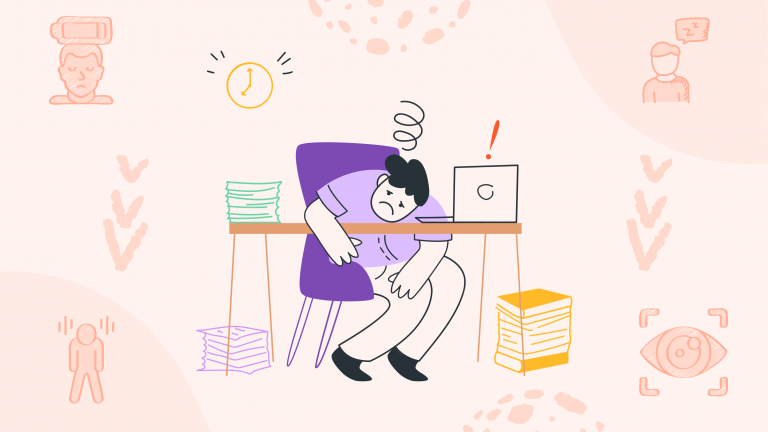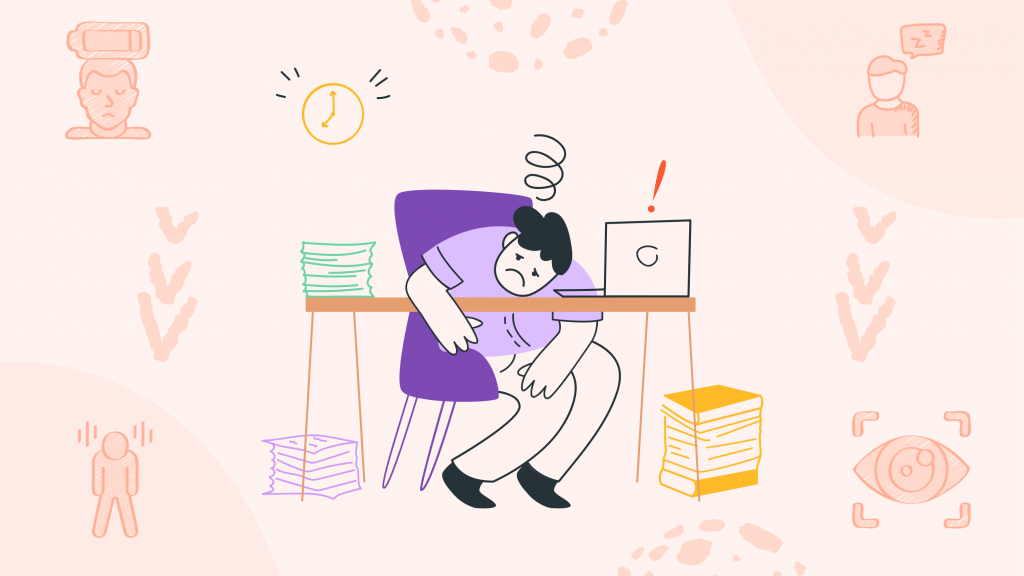A Daily Energy Battle
Constant fatigue is a pervasive issue that many people face, turning daily routines into daunting tasks. It’s not just about feeling sleepy; it’s a deeper sense of exhaustion that doesn’t seem to go away, even with rest.
This chronic tiredness can severely affect concentration, making it hard to focus on tasks or remember important information. Moreover, it often leads to irritability or sadness, casting a shadow over one’s mood and overall quality of life.
In everyday life, this struggle manifests in missed deadlines, forgotten appointments, and a persistent feeling of being overwhelmed. Social interactions and personal hobbies might feel like insurmountable challenges rather than enjoyable activities.
The constant battle against fatigue can make individuals feel stuck in a vicious cycle, where tiredness begets more tiredness, leading to a seemingly endless drain on physical and emotional energy.
The Science behind Sleepiness
At the core of chronic tiredness lies a complex interplay of neurological and neurochemical factors. Sleep, which is supposed to be restorative, may not be as effective due to poor quality or quantity, disrupting the body’s natural repair and rejuvenation processes.
This disruption affects the brain’s ability to cycle through the stages of sleep, particularly the rapid eye movement (REM) and deep sleep stages, which are crucial for cognitive functions and emotional regulation.
Neurochemically, constant tiredness can be linked to imbalances in neurotransmitters like serotonin and dopamine, which regulate mood, alertness, and motivation. An imbalance in these chemicals can result in a feeling of persistent fatigue and affect cognitive functions, making concentration difficult.
Additionally, stress hormones like cortisol may be elevated, further depleting energy reserves and compounding the problem.
This neurological and neurochemical turbulence can make individuals feel powerless against their fatigue, as their body and brain struggle to maintain a state of balance and efficiency.
Strategies for Enhanced Energy
To combat constant tiredness and its impacts, a holistic approach is necessary. Prioritizing sleep hygiene is paramount: establishing a consistent sleep schedule, creating a restful environment, and avoiding stimulants like caffeine and electronics before bedtime can improve sleep quality.
Nutrition also plays a critical role in managing energy levels. A balanced diet rich in fruits, vegetables, whole grains, and lean proteins can provide sustained energy throughout the day. Staying hydrated and limiting high-sugar and high-fat foods can prevent energy crashes that exacerbate fatigue.
Incorporating regular physical activity into your routine can improve sleep quality and boost energy levels. Exercise stimulates endorphin production, which can elevate mood and reduce stress, further combating the effects of constant tiredness.
Mindfulness and stress-reduction techniques, such as meditation, yoga, or deep-breathing exercises, can also help in managing the emotional and psychological aspects of chronic fatigue. These practices can lower stress levels and improve mental clarity, aiding in better concentration and mood regulation.
Daily practice steps to energize your life
- Establish a Sleep Schedule: Go to bed and wake up at the same time each day to regulate your body’s internal clock, enhancing sleep quality and overall energy.
- Create a Sleep-Conducive Environment: Ensure your bedroom is quiet, dark, and cool. Consider using blackout curtains, white noise machines, or eye masks to create an optimal sleeping atmosphere.
- Limit Stimulants and Screen Time: Avoid caffeine and electronics at least two hours before bedtime, as they can disrupt sleep by keeping your mind active and interfering with melatonin production.
- Break Activities into Manageable Tasks: If tiredness is overwhelming, tackle tasks in short, manageable intervals with breaks in between to prevent burnout and maintain energy levels.
- Seek Sunlight Exposure: Spend time outside during daylight hours or use light therapy boxes to regulate your natural sleep-wake cycle and improve mood and alertness.
- Evaluate and Adjust: Regularly assess your energy levels and the effectiveness of your strategies, making adjustments as needed to optimize your overall well-being and vitality.
Subscribe to newsletter
Get your Gut Health Starter Guide right now.
Elevate your Tuesdays with practical, science-backed wisdom propelling you forward on your gut health journey.

A Journey of Awakening to Vitality
Sarah’s life was once shrouded in a fog of fatigue, each day a battle against drowsiness and disengagement. Her professional tasks felt Herculean, and her personal interests waned under the weight of weariness. The turning point in her life narrative came with the realization that change was imperative and possible through structured, intentional shifts in her lifestyle.
“My world used to be cloaked in perpetual exhaustion. Waking up tired and slogging through the day was my norm, and coffee was my crutch. I knew I needed a change when my job performance began to wane and my personal life lost its color.
Committing to regular sleep hours was my first step towards change. I established a nightly routine that eased me into sleep, including a digital detox to escape the blue light trap. Gradually, my sleep improved, and mornings became less daunting.
Diet adjustments came next. I shifted to nutrient-rich foods that fueled my body without the energy crashes tied to sugar and caffeine spikes. This dietary shift, coupled with consistent jogging and yoga, began to lift the veil of tiredness.
These lifestyle changes transformed my existence. No longer was I the person struggling to focus and find joy in daily activities. My energy levels surged, my concentration sharpened, and my mood lightened.
Reflecting on my journey, I see a tapestry of small but powerful changes that together re-wove the fabric of my life. Improved sleep, nutrition, and exercise were not just remedies but gateways to a renewed self, brimming with vitality and engagement.
Sarah’s story is a testament to the life-altering impact of embracing comprehensive lifestyle changes to combat chronic fatigue. Her experience serves as a beacon for others navigating the murky waters of constant tiredness, illustrating that with dedication and the right strategies, it is possible to awaken to a life of renewed energy and joy.


















